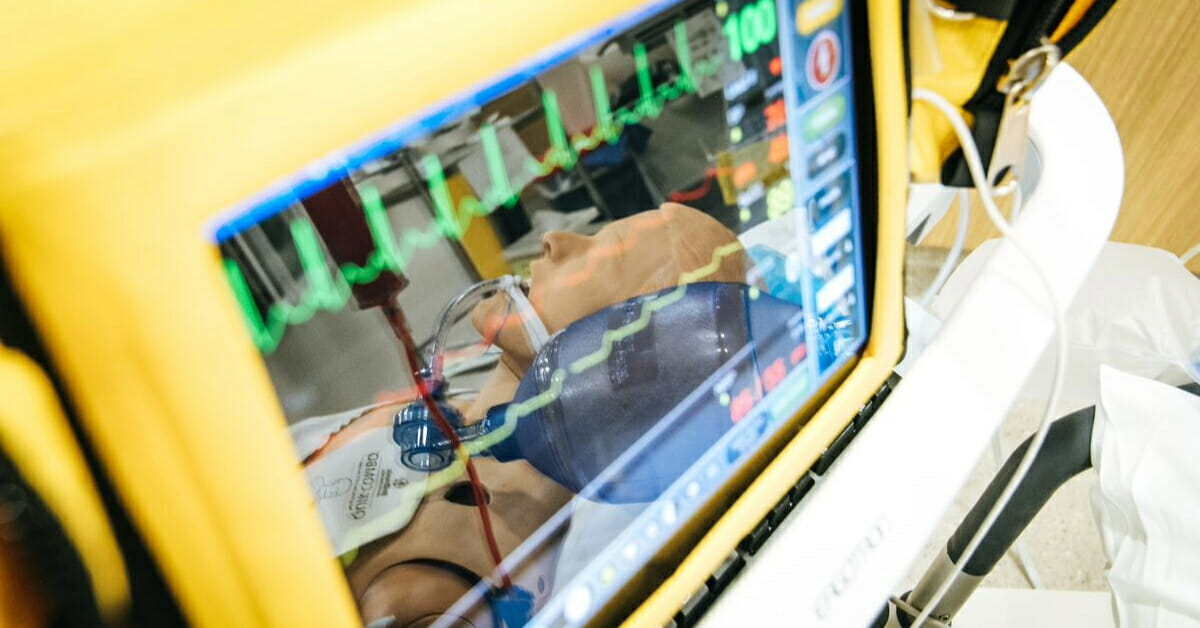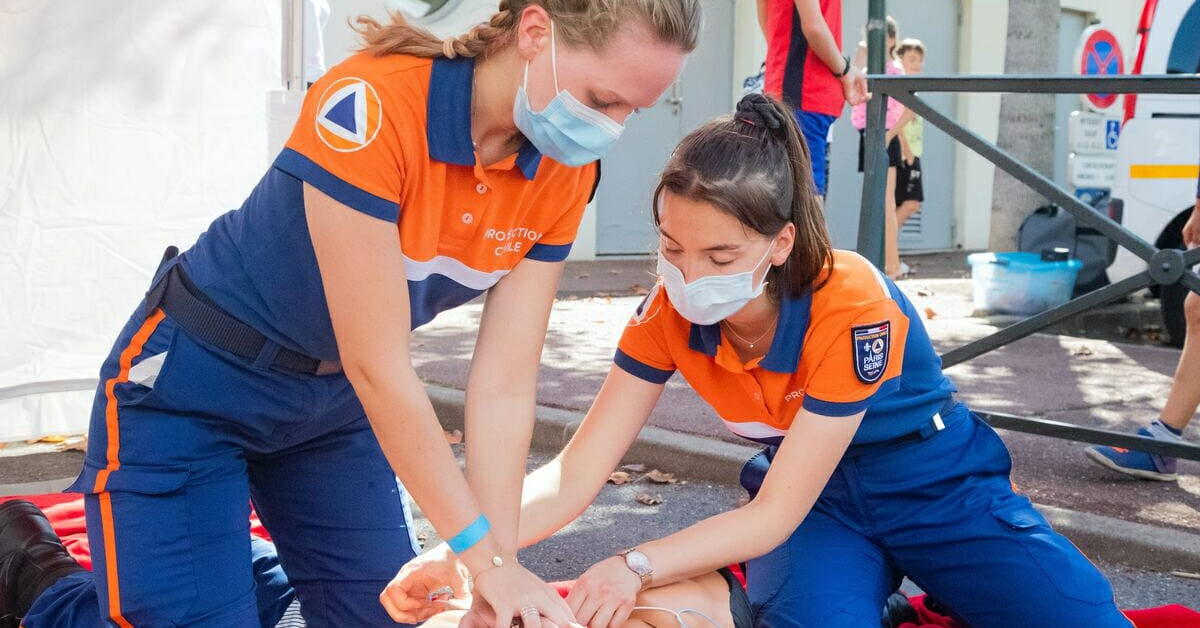Many international doctors dream of one day practicing medicine in Europe. But getting there isn’t always as simple as it seems. Issues like qualifications and licensing can prevent even the most experienced doctors from being able to practice abroad.
If practicing medicine in Europe is something you’re considering, then CAS certifications (Certificates of Advanced Studies) will help you do this. These accredited postgraduate programs fill the gap between your credentials and European standards, improving your chances of licensure and employment in Europe.
This blog post will guide you through how CAS certifications work, where they’re recognized, and how to use them to build your medical career in Europe.
Understanding CAS Certifications
Before using a CAS certification to advance your medical career, you must understand what it is and how it applies to you as a doctor.
While CAS programs are available in different areas, including law, education, and management, many are specifically for healthcare professionals. In the medical context, doctors use CAS to meet European standards.
This section will explain CAS certification, its accreditation, and how the credit system (ECTS) fits into European medical education and licensure.
What is a CAS certification?
A Certificate of Advanced Studies (CAS) is a postgraduate qualification offered by accredited training platforms and universities. It is aimed at professionals already practicing medicine. CAS programs provide specialized medical education in areas like Clinical Neurology, Internal Medicine, and Pediatrics. Each program usually awards 10–15 ECTS credits and meets the academic standards required for licensure by European licensing authorities.
CAS is a bridging qualification. It doesn’t replace your medical degree, but helps connect your current qualifications to what’s recognized and expected in Europe.
Accreditation and recognition by European healthcare bodies
CAS programs follow official EU education frameworks like the ECTS credit system. This helps to make sure that each CAS’s content meets standards across Europe.
Because of this, licensing authorities and employers in the EU and EFTA regions are familiar with CAS certifications. While a CAS on its own doesn’t replace formal licensure requirements, it’s often viewed as a sign of readiness, especially when your original training falls just short of European standards.
In practice, a CAS shows that you’ve worked towards meeting European expectations and adds recognized academic weight to your CV, licensing application, or request for supervised clinical work.
➡️See how Lecturio’s accredited CAS programs deliver flexible, ECTS-aligned training for international doctors.
ECTS credits and their importance
European healthcare systems run on the ECTS (European Credit Transfer and Accumulation System). It’s the common academic currency across the EU and EFTA countries. When you complete a CAS with ECTS credits, you’re earning educational credentials that are:
- Standardized
- Recognized across the EU
- Known by medical licensing authorities
For international doctors, ECTS credits show that your education is compatible with the European system.
ECTS acceptance across Europe
One important aspect of CAS certifications is that they award ECTS credits. Training platforms and Universities across all EU and EFTA countries use ECTS (European Credit Transfer and Accumulation System). ECTS provides a standardized way of measuring academic achievement, making it easier for licensing bodies to assess foreign qualifications.
For international doctors, this means your CAS certification is a formally recognized academic credential that European medical boards and institutions understand. Whether you’re applying for licensure, supervised practice, or further training, ECTS credits show that your education meets European academic benchmarks in terms of both depth and learning outcomes.
Earning ECTS through an accredited CAS program gives licensing authorities evidence that you meet European medical education standards. This is something that can carry weight during equivalency reviews.
How CAS Certifications Solve Recognition & Licensure Issues
If you’re an international doctor aiming to work in Europe, one of the biggest frustrations is hearing that your qualifications “don’t fully align” with local standards. CAS certifications help reduce these gaps.
Qualification gap examples
When international doctors apply to practice in Europe, their credentials are often assessed through an equivalency process. Qualification gaps are commonly identified here. CAS certifications offer a structured way to address these gaps.
- Germany: Doctors from non-EU countries often face additional requirements after reviewing their qualifications. CAS certifications can help address specific knowledge deficits, which may be noted during the equivalence assessment and support better preparation for the Kenntnisprüfung (knowledge exam).
- Switzerland: While licensure usually involves a Swiss federal exam or supervised practice, CAS certifications are considered advanced postgraduate training. Completing a CAS can strengthen a doctor’s application for supervised roles and show alignment with Swiss medical education standards.
- France: Non-EU doctors are required to pass the épreuves de vérification des connaissances (EVC). CAS programs don’t replace this requirement, but can enhance exam readiness and show your dedication to European-standard education.
In each of these countries, CAS certifications help fill clearly defined knowledge or practice gaps and help you prove your competency in a format understood across Europe.
How CAS Programs Support International Medical Careers in Europe
CAS in Heart Failure: University of Zurich & European Society of Cardiology
The Postgraduate Course in Heart Failure (PCHF), developed by the Heart Failure Association of the European Society of Cardiology in collaboration with the University of Zurich, offers a Certificate of Advanced Studies (CAS) upon completion.
This program is designed for cardiologists and related specialists. It provides 10 ECTS credits and aligns with European standards for heart failure management. The program’s structure aims to enhance participants’ qualifications in the European medical field.
CAS in Medicines and Medical Devices in Emergency and Disaster Situations: University of Geneva
The University of Geneva offers a Certificate of Advanced Studies that addresses using Medicines and Medical Devices in Emergency and Disaster Situations. This program delivers postgraduate training tailored to healthcare professionals involved in crisis response and preparedness. This course is a valuable option if you want to strengthen your qualifications within European healthcare.
These two examples can help you understand how CAS certifications can be valuable for international medical professionals who want to practice medicine in Europe.
➡️ Explore our accredited, ECTS-awarding CAS in Clinical Neurology.
Which CAS Programs Are Right for You?
Choosing the right CAS certification depends on your medical background, your target country, and the qualification gaps you need to fill. Below are four popular CAS programs relevant for international doctors aiming to practice in Europe. Each offers accredited, ECTS-awarding training aligned with European standards, and each can help strengthen your licensure application and job prospects.
CAS in Clinical Neurology
What it covers: Neurological disorders, neuroanatomy, diagnostic tools, and treatment strategies commonly required in European medical settings.
Who it’s for: General practitioners, internists, or neurologists who need formal, EU-aligned neurology training.
Benefits: Helps demonstrate clinical competence in a high-stakes specialty, strengthens equivalency applications, and supports licensure preparation.
ECTS: 10
➡️Explore Lecturio’s Clinical Neurology CAS Course
CAS in Clinical Reasoning in Primary Care
What it covers: Diagnostic reasoning, differential diagnoses, outpatient decision-making, and patient communication, for European primary care settings.
Who it’s for: Family doctors, primary care physicians, and generalists transitioning into EU-based practice.
Benefits: It prepares you for licensing exams, emphasizing clinical thinking and supporting better integration into outpatient and supervised roles.
ECTS: 10
➡️ Explore Lecturio’s Clinical Reasoning in Primary Care CAS Course
What is DAS?
DAS or Diploma of Advanced Studies is a more in-depth postgraduate program typically comprised of multiple CAS modules. It offers a deeper academic foundation and is ideal for doctors needing broader training or stronger credentials for licensure in countries like Germany or Switzerland.
DAS Internal Medicine I & II
What it covers: Core internal medicine topics including cardiology, pulmonology, nephrology, endocrinology, and infectious diseases, across two sequential programs.
Who it’s for: Internists, hospital doctors, and physicians must demonstrate strong foundational knowledge in European internal medicine.
Benefits: It helps close critical knowledge gaps often flagged in equivalency assessments, especially in Germany and Switzerland, and strengthens your licensure case.
ECTS: 20 (combined)
➡️ Start with Lecturio’s DAS in Internal Medicine I
➡️ Continue to Lecturio’s DAS in Internal Medicine II
CAS in Pediatrics
What it covers: Child growth and development, immunizations, acute care, chronic conditions, and child-focused clinical decision-making.
Who it’s for: Generalists, pediatricians, or family physicians applying for roles involving pediatric care or supervised training.
Benefits: Adds essential pediatric experience to your CV, helps meet child health requirements in European licensing, and improves readiness for clinical interviews.
ECTS: 10
➡️ Explore Lecturio’s Pediatrics CAS Course
Practical Steps to Leverage CAS Certifications for Your European Career
Understanding the value of a CAS certification is one thing; knowing how to use it is what will eventually help your licensure and practice in Europe. We will go through all the steps, from choosing the right program to presenting your CAS in licensing applications and job interviews.
How to choose, enroll, and complete CAS certifications
Selecting the right CAS depends on three things:
- Your target country: What licensing body will assess you?
- Your qualification gaps: What feedback have you received from an equivalence review?
- Your career goals: Are you aiming for primary care, specialty training, or a hospital-based role?
Once you’ve identified your focus area, follow these steps:
- Compare CAS courses based on ECTS credits, content, and accreditation (Lecturio and Swiss university-based programs are recognized).
- Enroll online: Lecturio’s CAS programs, for example, are fully online, self-paced, and open to doctors globally.
- Complete the coursework and assessments within the set timeframe (most CAS programs take 3–6 months part-time).
- Download official transcripts and certificates, which include ECTS credit statements and university accreditation details.
How to present CAS on a CV or application
When adding a CAS certification to your CV, list it clearly under your “Education” section, including the full program name, the awarding institution, and the number of ECTS credits earned (e.g., CAS in Clinical Neurology – DHGS Germany, 10 ECTS).
On licensing applications, CAS certificates should be included as supporting documents, especially when you need to demonstrate additional training aligned with European standards.
In cover letters and interviews, highlight your CAS as evidence of your commitment to EU-recognized education. Be specific and mention the accredited structure, ECTS credit system, and how it directly supports your readiness to work in European healthcare.
Testimonial
| “I scored a 9 out of 10 on my final Neurology exam, one of the best scores of anybody in the course! For me, Lecturio played a key role in understanding the materials presented in Internal Medicine 1 and 2. This comprehensive review helped me to get an excellent score.”— Yaniv Itzigsohn, MD Graduate, Fundación H.A. Barceló Universidad de Medicina, Buenos Aires, Argentina. Read the full story here |
Common Questions & Concerns (FAQs) about CAS
Even after understanding the structure and value of CAS certifications, many international doctors still question how these programs fit into European licensure and career opportunities. Here are answers to some of the most common questions:
Will a CAS certification guarantee me a medical license in Europe?
No, CAS certifications do not replace national licensing exams or legal registration processes. They strengthen your profile by demonstrating alignment with European standards. Many doctors use CAS programs to support their applications for licensure, supervised practice, or equivalence assessments, especially in countries like Germany and Switzerland.
Are CAS certifications recognized across all European countries?
Accredited European universities award CAS certifications and provide ECTS credits, which are recognized across the EU and EFTA regions. While recognition may vary depending on the country and specialty, CAS credentials are widely respected as supplementary academic training, particularly when paired with your core medical degree and other required documents.
What’s the investment in time and is it worth it?
Most CAS programs take 3–6 months part-time to complete. They are designed to be fully online and flexible for working professionals. Suppose you’re looking to practice in Europe. In that case, the return on investment comes from improved exam readiness, stronger applications, and greater career mobility, especially when your original training doesn’t fully match local requirements.
Conclusion
CAS certifications offer international doctors a way to align with European medical standards, without starting from scratch. They provide accredited postgraduate training, award ECTS credits, and are recognized across the EU as evidence of specialized knowledge and continuing professional development.
Completing a CAS strengthens your licensing application, improves your chances of securing clinical roles, and demonstrates your commitment to high-quality, EU-aligned medical practice.
➡️ Move one step closer to practicing in Europe.
Start exploring CAS programs that match your specialty and career goals. Lecturio offers flexible, fully accredited options for international doctors just like you.





